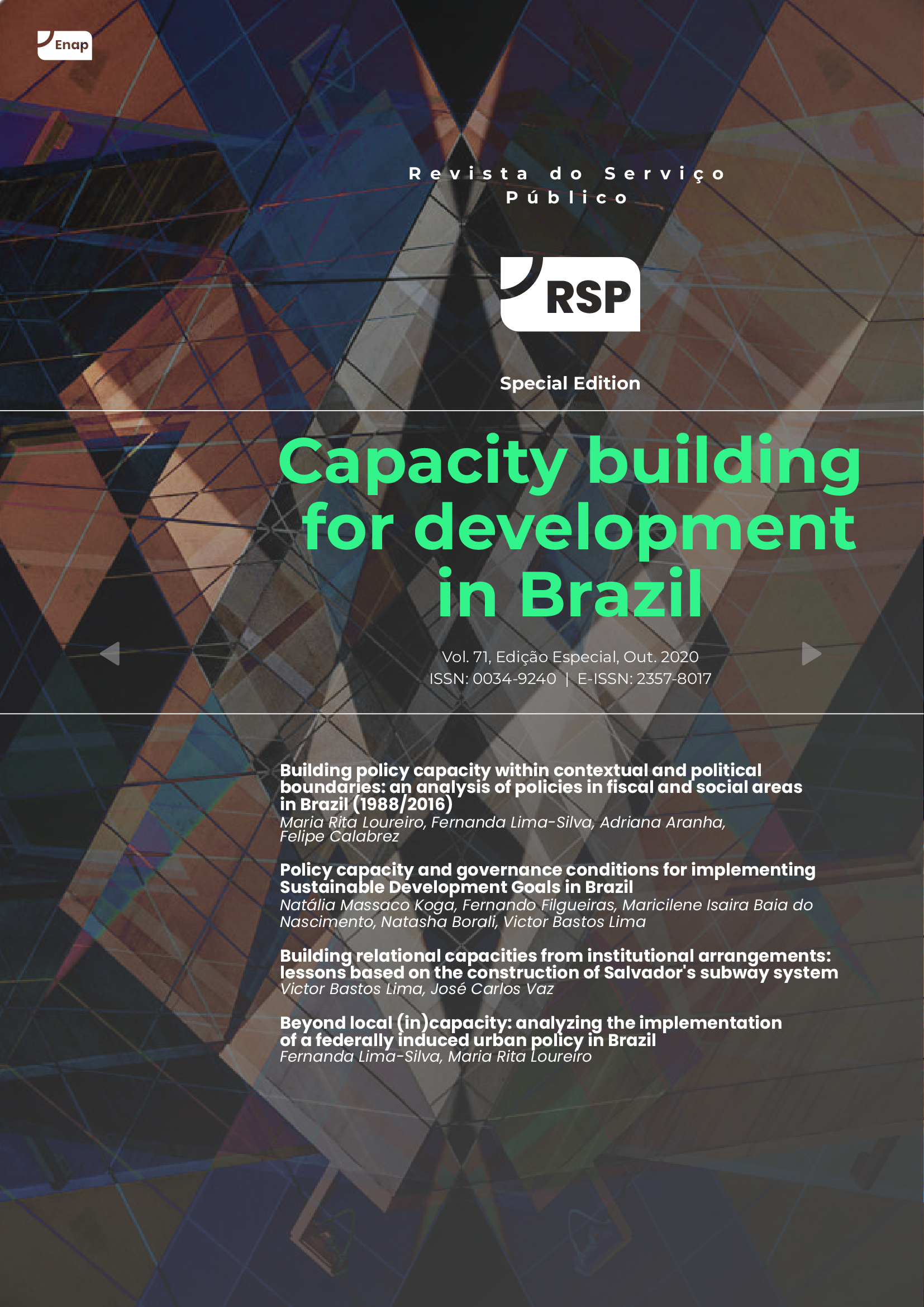Building policy capacity within contextual and political boundaries: an analysis of policies in fiscal and social areas in Brazil (1988/2016)
DOI:
https://doi.org/10.21874/rsp.v71ib.4056Palabras clave:
state capacity, policy capacity, political priorities, BrazilResumen
The current debate on state capacity, despite practical relevance for policy-making and analytical advances in the last decades, is still permeated by several theoretical and methodological problems. Considering that a revised concept of policy capacity has analytical utility, this work has contributed to the literature in three interrelated ways. First of all, we work on the concept of state capacity, highlighting its specificities in regard to the generic notion of power. Secondly, this article shows the relevance of bringing contextual and political elements into the debate of capacity. Thirdly, it helps to establish clearer boundaries on this notion, marking its differences to concepts such as resources and results. Empirically, it analyzes policy capacity developments in areas that have expressed priorities in the governmental agenda in former Brazilian presidencies. In the government of Fernando Henrique Cardoso, the focus is on the fiscal function of the state as a guarantor of credibility for investors, having as a case study the National Treasury Secretariat (STN), within the Ministry of Finance. In Lula's and Dilma's terms, the attention is the social area: the National Secretariat of Citizenship Income, within the Ministry of Social Development, and the National Secretariat of Housing, within the Ministry of Cities, both created at the beginning of the government Lula.
Descargas
Descargas
Publicado
Cómo citar
Número
Sección
Licencia
Derechos de autor 2020 Revista do Serviço Público

Esta obra está bajo una licencia internacional Creative Commons Atribución-NoComercial-CompartirIgual 4.0.
- A RSP adota a licença Creative Commons (CC) do tipo Atribuição – Uso Não-Comercial (BY-NC).
- A licença permite que outros remixem, adaptem e criem obra licenciada, sendo proibido o uso com fins comerciais.
- As novas obras devem fazer referência ao autor nos créditos e não podem ser usadas com fins comerciais, porém não precisam ser licenciadas sob os mesmos termos dessa licença.
- Ao publicar o artigo na RSP, o autor cede e transfere para a ENAP os direitos autorais patrimoniais referentes ao artigo.
- O artigo publicado na RSP não poderá ser divulgado em outro meio sem a devida referência à publicação de origem.
- O autor que tiver o artigo publicado na RSP deverá assinar o Termo de Concessão de Direitos Autorais (em momento oportuno a editoria da Revista entrará em contato com o autor para assinatura do Termo).



